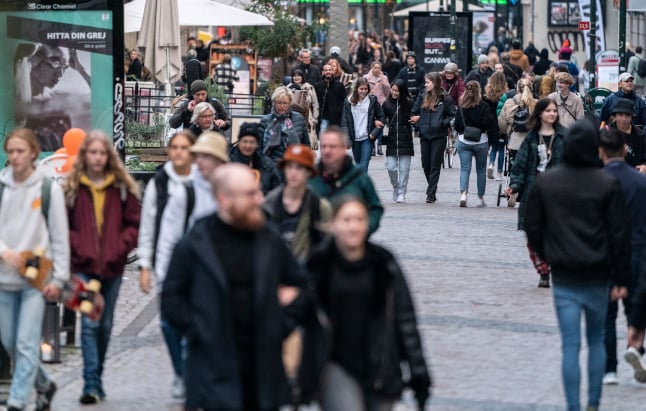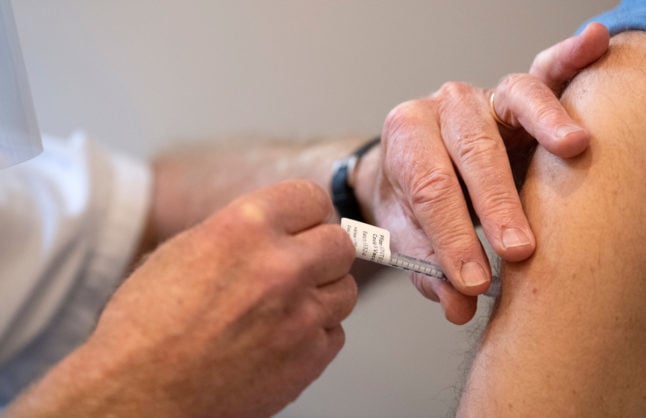Bars and restaurants
All the remaining restrictions that apply to restaurants and bars are removed as of September 29th.
The rules that were in place up until this date stated that places that serve food and drink must take measures to avoid crowding, including making sure that guests are able to keep a distance of at least a metre to other groups of guests and not allowing more than eight people per group indoors. These were strict legal limits, and restaurants faced fines if found in violation of them.
Now, there are no legal limits on distancing between tables or group sizes at bars and restaurants, but be aware that some establishments may set their own rules.
Public events
Public events were one of the most strictly regulated areas during the pandemic. From September 29th, all restrictions will be removed.
Previously, seated indoor events were allowed no more than 300 attendees and seated outdoor events no more than 3,000 attendees. Other limits included a maximum of 50 people at private events organised in rented premises (Sweden has never had a pandemic limit on private events or gatherings in for example private homes).
Now, these limits are gone, paving the way for large concerts, sports matches, and other events. No proof of a Covid-19 vaccine or negative test is required for entry by law. Again, you may need to check if individual event organisers have set their own rules.
Working from home
Sweden has since spring 2020 advised everyone to work from home if the nature of their work allows.
This recommendation is lifted as of September 29th, but the Public Health Agency has advised employers to implement a return to physical workplaces “gradually”.
If an employee has symptoms, they should always work from home (or call in sick if they have to) and get tested for Covid-19, and the employer should take steps to help them work from home – note that this continues to apply even after September 29th.
For most people, the advice to work from home was only a recommendation and not legally binding, although some public sector offices were ordered to work from home during the pandemic.
Unvaccinated people should avoid close contacts
People who have not been vaccinated against Covid-19 should keep a distance from people outside their closest circle, and in particular avoid close contact with people in risk groups or aged over 70, even after September 29th.
These recommendations only apply to adults aged over 18 who have not been advised against vaccination by a doctor for medical reasons.
According to the Public Health Agency’s general director, these guidelines mean that unvaccinated people should avoid going to bars, nightclubs, and large events such as theatres, concerts, and sports events. This is because now that the previous laws ensuring distancing at those venues have been removed, it may not be possible to ensure keeping a distance there.
General recommendations for the public removed
Recommendations to avoid crowding, to meet each other outdoors rather than indoors and to practise good hand hygiene are no longer be in effect after September 29th. Note the exception for unvaccinated people as explained above.
Recommendations that applied to organisations and companies (called föreskrifter in Swedish) have also been removed, including for example rules around organised sports, rules for workplaces, and for people organising events.
The Public Health Agency said that these were no longer judged to be “motivated from the perspective of infection control or public health”.
What rules still apply in Sweden?
One recommendation which still applies to everyone in Sweden after September 29th is to stay at home, get tested, and avoid contact with others if you develop Covid-19 symptoms.
Sweden’s Communicable Diseases Act also applies, which states that individuals have a legal responsibility act responsibly to reduce the risk of spreading infectious diseases. In practice, this means that the recommendation to stay at home and get tested if you develop symptoms should not be considered optional.
Sweden’s non-EU/EEA entry ban is at the time of writing in force until October 31st, as is the requirement for certain travellers to show a vaccine pass or a negative Covid test. It has been extended several times during the pandemic, so it could be extended further or scrapped before this date.



 Please whitelist us to continue reading.
Please whitelist us to continue reading.
Member comments